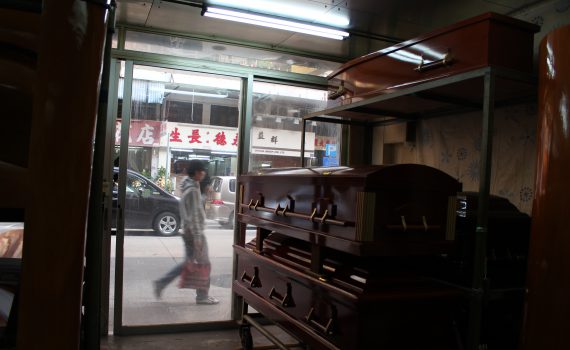Rabbit refuge struggles to re-home surrendered bunnies
- 2014-01-16
Hong Kong's only rabbit care centre has been overladen as pet rabbits given up by owners outnumber suitable adoptive and foster families by a large margin.
Hong Kong's only refuge for rabbits is asking pet lovers to adopt a bunny instead of buying one as it is being inudated with a rocketing number of the furry animal surrendered by owners.
It also wants people to think over before raising a rabbit, which means a commitment of seven to ten years given the animal's normal lifespan.
Hong Kong Rabbit Society, the city's only animal welfare group exclusively for rabbits, says its care centre has been overladen by owner-surrendered pet rabbits as bunnies catch on with local pet lovers in recent years.
The overwhelming number of pet rabbits had forced a yearly intake quota of 200 to be set in 2009 at the centre, said a committee member of the society Ms Joanna Chow Yuk-ha.
She said the society had been advocating for pet adoption instead of purchase and struggling to re-home a capacity number of over 40 rabbits currently at the centre.
Around 100 rabbits are adopted each year from the centre and more than 30 rabbits are now in foster families, but the figures do not look good when contrasted with the large inflow of the furry refugees, according to Ms Chow.
She said a shortage of qualified adoptive and foster families for rabbits had been a major setback in the re-homing process as not many people had the skills and perseverance needed for adopting or fostering a rabbit.
Ms Chow said the society went through prudent, month-long procedures when selecting new homes for the rabbits to ensure their fluffy clients' well-being. Applicants have to pass a phone interview to show "they know what to do" with a rabbit, attend a two-hour training session and volunteer at least twice at the centre before they can bring a rabbit home.
The society would also appraise whether a given family would be able to take care of the animal towards the end, she said.
"Your situation is okay now, but that doesn't mean you will be okay with the rabbits seven or ten years later," said Ms Chow, referring to a healthy rabbit's life span.
Ms Yuki Tang Yuk-lin, a volunteer at the society who has helped foster tens of rabbits in the past seven years, said old, sick rabbits were unpopular among adopters and would be taken care of by the centre until their final moments.
"Some rabbits are given up when they are quite old. I feel really sorry for them," said Ms Tang. "But no matter how old they are, no matter how sick they are, we will provide medical care for them and try to restore their health."
Around 20 rabbits currently at the centre were in need of long-term medical intervention, which had stretched the society's tight budget by $200,000 in the past four months, said Ms Chow.
Cases exist in which pet owners dump their sick rabbits on the street.
Ms Chow remembered receiving an abandoned rabbit in a paper bag brought in by a girl who happened to find it on the street on a freezing day in 2009.
"When we opened the paper bag, we were shocked. We couldn't see a normal rabbit," she recalled. "We picked up the rabbit and checked him, he was almost dead. He was dying."
The rabbit's eyes were closed and it could not stand properly, described Ms Chow. It weighed only 0.8 kilograms, 1.2 short of the healthy weight of its kind, she said.
Ms Chow and her colleagues thought the severely underweight poor mite would not survive, but it made to the next day and was named "Magic".
Magic lived for another two and a half years under the care of Ms Chow, who would even take it to work.
"He was very brave," she said. "You could see a tiny little thing like this trying to survive under such difficult circumstances."
Ms Tang urges pet owners not to give up their rabbits on a whim.
"If you choose to raise them, care for them towards the end," she said.
Reported by Steven Wang
Edited by Vanessa Piao
《The Young Reporter》
The Young Reporter (TYR) started as a newspaper in 1969. Today, it is published across multiple media platforms and updated constantly to bring the latest news and analyses to its readers.

Hong Kong is not a good place to die

Plug the Personal Data Leak




Comments